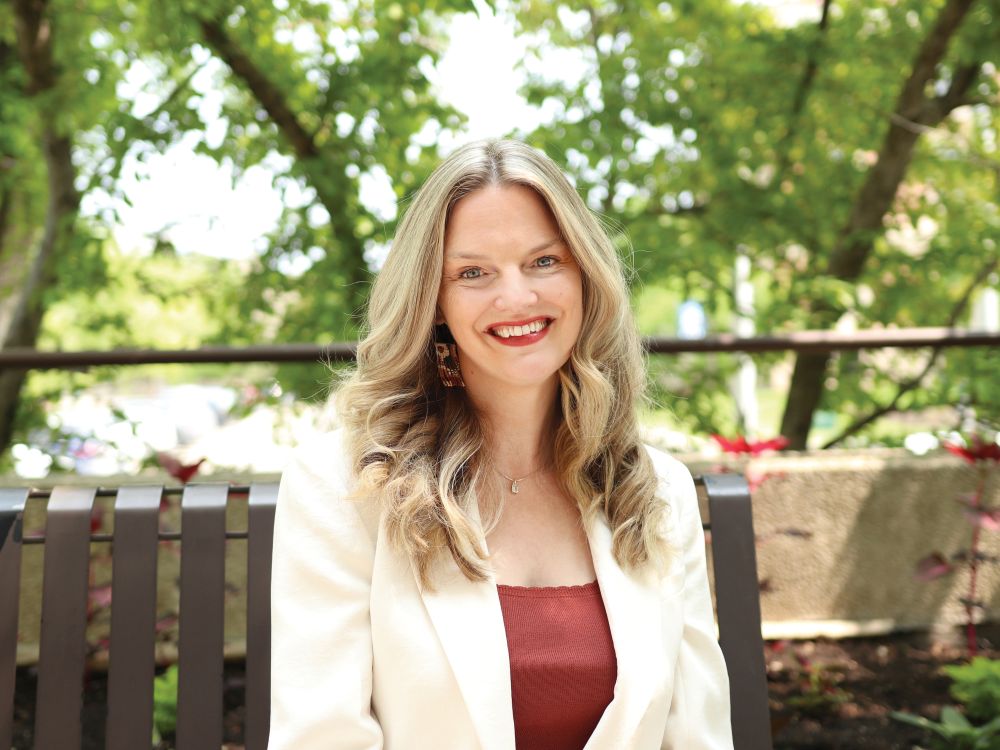
In Canada, for every 100 nurses who graduate and start working, 40 leave the profession before the age of 35. That’s according to a report last year by the Montreal Economic Institute.
“We have this massive hemorrhaging of young nurses, and we often blame the health-care system for it. But nursing education plays a part,” says Dr. Marnie Kramer, assistant professor of nursing.
“Students come into our nursing program with their cup full. The intensity of the program depletes their cup. If we don’t teach them how to fill it back up, they go to practice with a half-full cup, and then the relentless health-care system drains it. And then we wonder why they leave.”
Kramer, who grew up in the Edmonton area, earned her bachelor of nursing and master of education at the University of Alberta, followed by her PhD in nursing from the University of Toronto. She joined the UM faculty in 2020.
As a researcher focused on nursing education, she has explored why students fail exams and courses, and strategies for helping them to rebound and succeed. Increasingly, she is interested in learners’ emotional needs and responses to stressful situations.
“We have to start teaching students to think about how they’re coping and what they need,” she says. In 2024, Kramer led a study of coping by fourth-year nursing students. She had each student take an inventory to identify their style of handling stress.
“We found that knowing whether a student is a task-based coper, an emotion-based coper or an avoidance-based coper helps the instructor to better support the student, and helps the student to recognize their own patterns and needs,” the professor says.
One of Kramer’s current studies aims to understand young nurses’ “attributions” when they’re new to practice – their beliefs about what’s causing their distress at work. “If they’re in a situation they think they can’t control, they’re more likely to leave,” she says.
Kramer hopes to follow up the study by creating an attributional retraining program for nurses, aiming to encourage more resilient ways of thinking about challenges.
UM recognized Kramer with the Scholarship of Teaching and Learning (SoTL) Teaching Scholar award for 2024-2025. It funded her for a study of teaching a challenging nursing course using novel approaches, including “mastery learning.”
“Mastery learning is when you’re allowed to struggle with something until you learn it,” she says.
UM is becoming known as a centre for excellence in nursing education research, she says.
Kramer has collaborated on several studies with colleagues Dr. Nicole Harder [BN/96, MPA/02], an expert on learning through clinical simulation, and Kim Mitchell [BA/92, BN/97, MN/02, PhD/21], whose area is literacy in nursing.
“We have graduate students coming to UM now who want to specialize in nursing education research,” she says.
Kramer’s own experiences have shaped her drive to equip students to handle setbacks. “I struggled with medication math in nursing school,” she remembers.
“I had to take remedial math, but I ended up being an intensive care nurse. I can calculate really complex medical drips. All those little failures, if you have the ability to keep going, they just build you. And then you have empathy when others are struggling.”
BY ALISON MAYES
